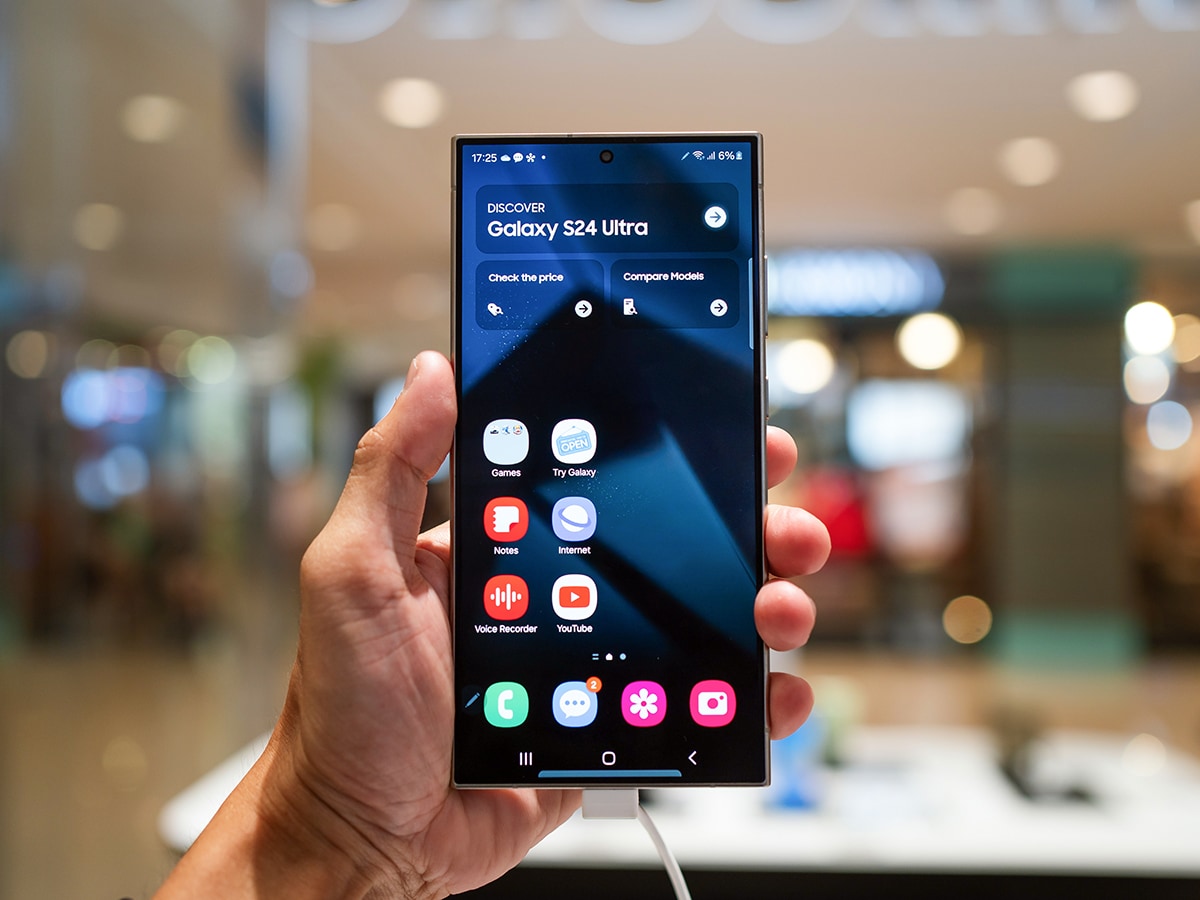Tech5: India seeing smartphone 'premiumisation'; at Dow Jones index, Nvidia is in, Intel out, and more
Forbes India's daily tech news bulletin with five headlines that caught our attention
 India’s smartphone market grew 3 percent year-on-year in calendar Q3 2024, with value surging 12 percent to an all-time quarterly high, driven by a “premiumisation” trend
Image: Shutterstock
India’s smartphone market grew 3 percent year-on-year in calendar Q3 2024, with value surging 12 percent to an all-time quarterly high, driven by a “premiumisation” trend
Image: Shutterstock
Samsung, Apple lead India’s rising smartphone ‘premiumisation’ trend
India’s smartphone market grew 3 percent year-on-year in calendar Q3 2024, with value surging 12 percent to an all-time quarterly high, driven by a “premiumisation” trend, according to market researcher Counterpoint’s latest monthly India smartphone tracker.Early festive season sales and proactive stock filling by original equipment manufacturers (OEMs) helped fuel the volume growth, though the start of festive sales was slower compared to 2023. Samsung led the market in value with a 23 percent share, prioritising its flagship Galaxy S series and integrating artificial intelligence (AI) features into its mid-range models, Counterpoint notes.
Apple followed with a 22 percent value share, bolstered by strong shipments of the iPhone 15 and iPhone 16. The brand’s push into smaller cities and its aspirational image have strengthened its position as the top choice for premium buyers in India. The market shift towards higher-priced smartphones is supported by aggressive EMI offers and trade-ins, reflecting growing consumer investment in premium devices, according to Counterpoint.
Dow Jones index: Nvidia in, Intel out
S&P Dow Jones Indices will make significant changes to the Dow Jones Industrial Average (DJIA) and Dow Jones Utility Average (DJUA), effective before the market opens on November 8 in the US. Nvidia will replace Intel in the blue-chip DJIA, reflecting the stunning rise of the GPU maker on the back of demand for AI accelerators and the historic end of an era for Intel, an American tech icon that’s yet to offer a serious competing product.This change removes Intel from the index after a 25-year reign. Intel’s latest quarterly earnings results that came out last week led to some investor optimism that the company may yet be able to regain some of the manufacturing edge and the market share it has lost over the years. However, initial projections for Intel’s vaunted AI chip, called Gaudi, show it’s not getting the traction the company had hoped for.
Palantir, after earnings beat, says US AI demand ‘unrelenting’
Meanwhile, Palantir Technologies, the advanced data analytics and AI software company co-founded by Silicon Valley billionaire Peter Thiel, exceeded its fiscal third-quarter revenue expectations, driven by high demand for its AI software in the US, with sales rising 30 percent to $725.5 million. Shares surged.The company also reported a record net income of $144 million. Palantir raised its 2024 revenue forecast to $2.81 billion. This beat analyst predictions, according to Bloomberg. Palantir’s US commercial business grew 54 percent, while US government sales rose 40 percent, fuelled by defence spending and its AI tools continue to gain traction.
“We absolutely eviscerated this quarter, driven by unrelenting AI demand that won’t slow down. This is a US-driven AI revolution that has taken full hold. The world will be divided between AI haves and have-nots,” said Alexander C Karp, co-founder and CEO, in a company press release on the earnings.















